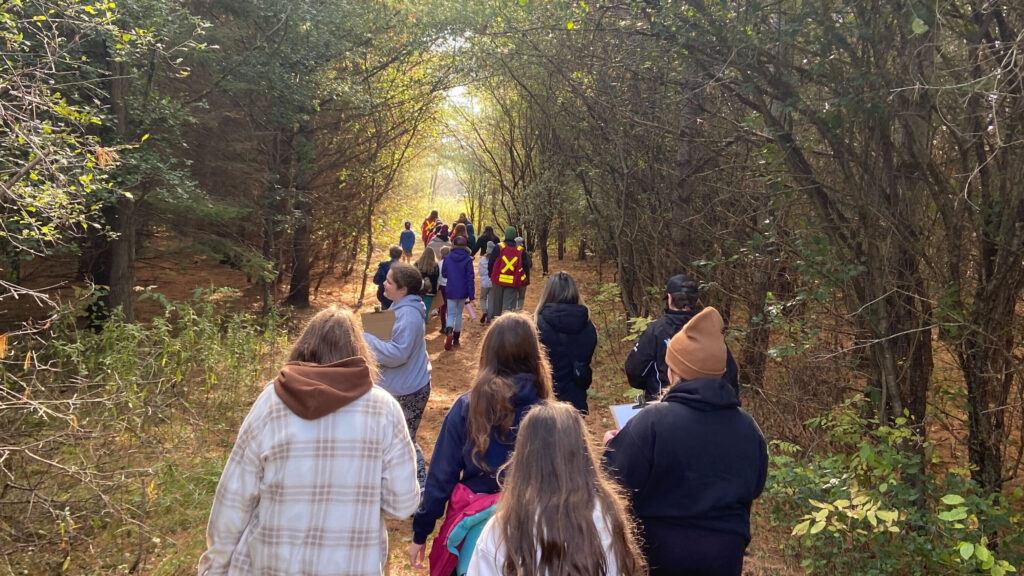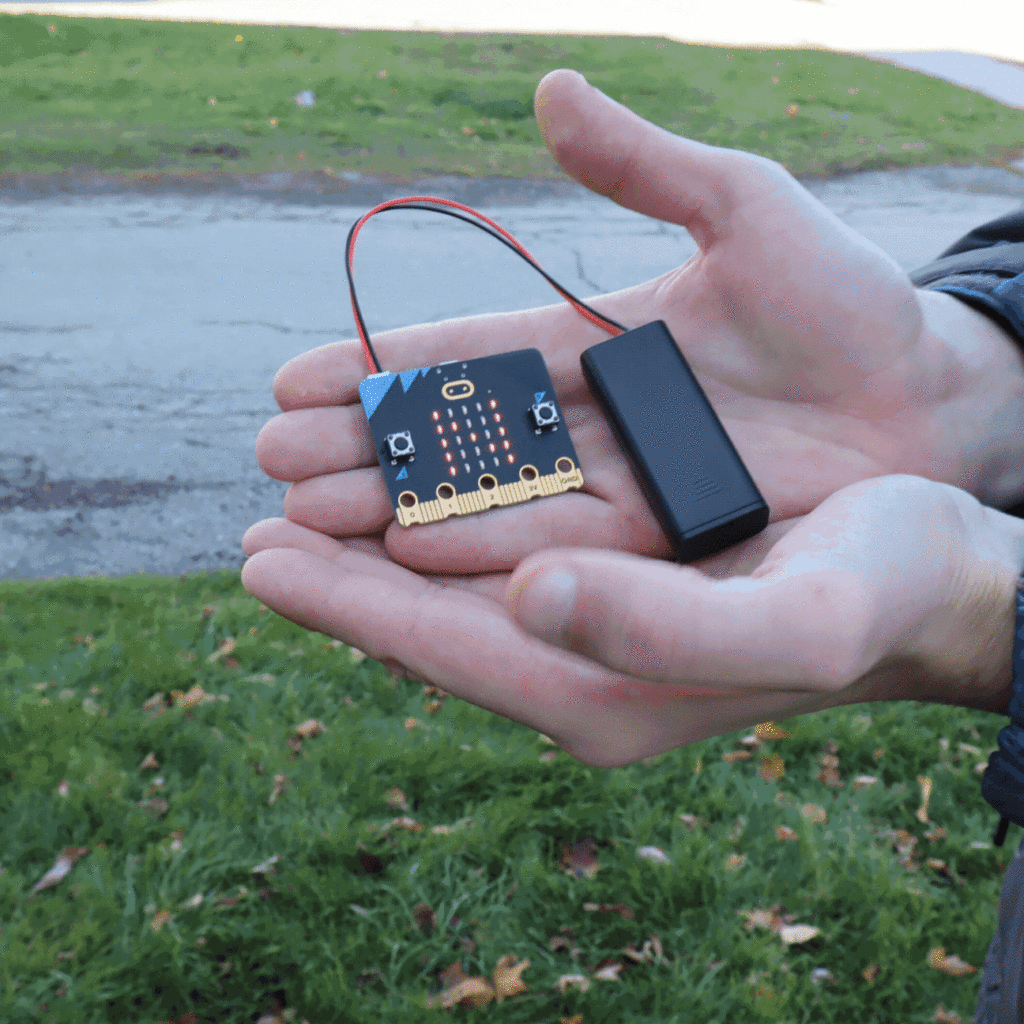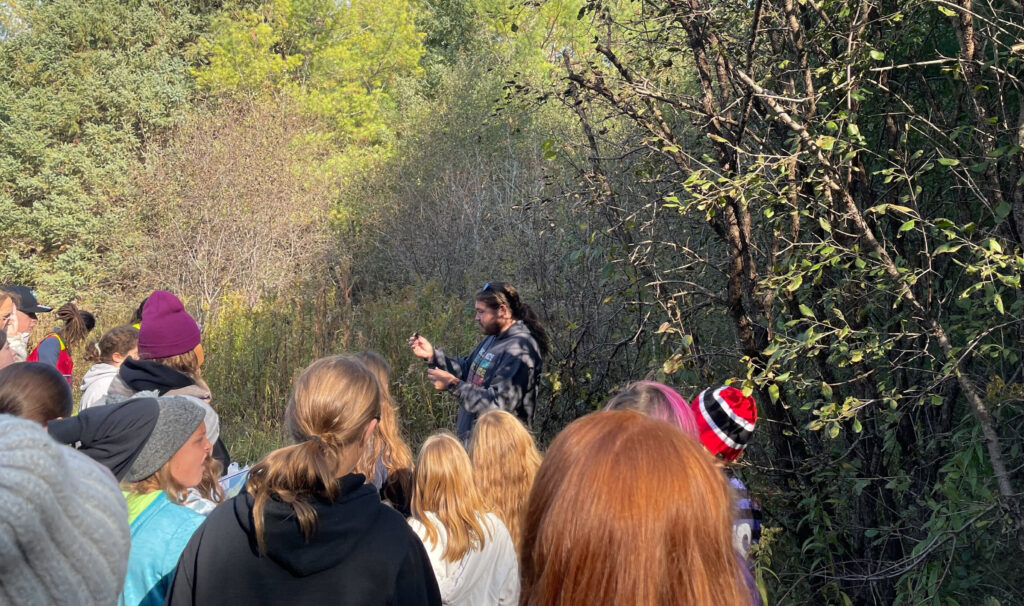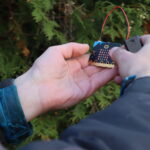It’s one thing to read about the changing of the seasons, it’s quite another to feel the crisp air, see the frost and smell the fallen leaves. As informative as books and screens can be, nothing beats learning about the science of the natural world immersed in the natural world.

“Meaningful learning experiences are not limited to the classroom,” says Caitie Blumsom, STEAM Educator at Pinnguaq, reflecting on the success of the organization’s participation in Take Me Outside Day 2023.
Take Me Outside Day is facilitated by Take Me Outside (TMO), a non-profit, charitable organization focused on strengthening connections to nature and bringing learning to life by taking it outdoors.
TMO works with other organizations, school boards and individuals to encourage children and youth to spend more time outside through various projects and initiatives, including Take Me Outside Day (October 18 in 2023).
This year, Pinnguaq partnered with TMO and Alexandra Public School to take 23 learners to Ken Reid Conservation area for some engaging land-based, STEAM-focused learning. As education is a key component of the Pinnguaq Lifecycle, the organization’s unique approach to providing support and opportunities at all stages of life, embracing a new environment for STEAM education was a natural (get it?) fit.
“You can engage learners with every element of STEAM by bringing them outside,” says Blumsom, an Ontario certified teacher. “It’s all there.”
So, what did Pinnguaq’s TMO Day programming look like?
In-class coding
First, we visited our learners at school to code BBC micro:bits. These versatile, pocket-sized gadgets are used in a lot of Pinnguaq’s programming and be programmed to do a host of things from rock, paper, scissors to acting as a step-counter and more. In this case, students programmed the micro:bits to be compasses that would be used when the group explored Ken Reid later in the week.

Outdoor learning
Once at Ken Reid, the group participated in a plant walk led by Matt Levac, a local plant Knowledge Holder, a term used in many Indigenous communities referring to someone who has been taught by an Elder or senior Knowledge Holder within their community. This person holds traditional knowledge and teachings, and have been taught how to care for these teachings.
Levac shared his knowledge as he introduced learners and Pinnguaq team members to various plant species along the walk.
The learners went on a scavenger hunt for colours, connecting them with the changing seasons and the impact that has on the leaves. This activity helped establish a sense of place in learning and connected the participants to the land a little more, as did the activity where students were asked about which direction they felt was north, without using a compass.

Connecting Technology and Nature
Working with partners, learners used their micro:bit compasses, programmed earlier in the week, a piece of paper and a pencil to find numbered tokens in a large field and map their route.
The day also included a game of Predator Versus Prey, teaching about the food chain in a fun, exciting way.
Looking Ahead
Blumsom says incorporating outdoor learning into education practices is an excellent way to help learners understand the land and feel safe there, letting educators bridge the gap between initial discomfort and successful land-based learning, creating a sense of place.
Pinnguaq’s participation in TMO Day was a pilot this year, but a hugely successful one, and we’re already planning for 2024.
